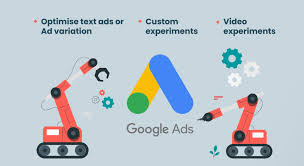 You were not alone at finding the first page of Google search results annoying. As has been expected, the tech user experience was annoying. There were ads and more ads to scroll past as you looked for a believable answer. As a result of those ads, the answer seemed, well, somewhat untrustworthy. But a few months ago, that changed, and for those of you just returning for a search, you will be startled. Asking “what AI is in hearing aids” – a longer answer is provided, with the ads for hearing aids pushed to the right side for those with big screens. On a phone, these are not visible. No doubt Google is working on that as we speak, though its list of examples, these soon became AI (Gemini) powered paid ads.
You were not alone at finding the first page of Google search results annoying. As has been expected, the tech user experience was annoying. There were ads and more ads to scroll past as you looked for a believable answer. As a result of those ads, the answer seemed, well, somewhat untrustworthy. But a few months ago, that changed, and for those of you just returning for a search, you will be startled. Asking “what AI is in hearing aids” – a longer answer is provided, with the ads for hearing aids pushed to the right side for those with big screens. On a phone, these are not visible. No doubt Google is working on that as we speak, though its list of examples, these soon became AI (Gemini) powered paid ads.
Google must maintain an iron grip on the search market – the newbies are worrisome. Google’s business is built on ads -- $175 billion annually just from search, with $46 billion in the first quarter alone. No doubt Google is working on diversification, though there is not much to show from this revenue breakdown graphic. The company owns YouTube, which isn’t contributing much – and nobody seems to really want the Pixel phone.
For us searchers – we welcome a change in format. Google has the best (and fastest) search engine by most online assessments – and with 91% market share, that makes sense, considering it dominates their revenue. But AI advancements no doubt may have made them nervous: These “include ChatGPT, Anthropic, Perplexity, and Microsoft’s Bing, which is powered by OpenAI’s GPT-4, all have challenged Google’s flagship service by directly providing answers to questions.” Oddly, of course, that was we were all searching in the first place. Gemini is Google's AI-enabled search -- and it is impressively verbose. As for us users, AARP has offered up a thought-provoking quiz to help test general knowledge of about AI.
Why is search so important for the AgeTech market? Despite the presence of resellers, retailers, pay-to-play referral sites and well-meaning care workers and families, in the end, Search is what we have. When we are desperate, need information, know nothing about what to look for, maybe we could get a bit of clarity from AI-enabled explainers. As for the old style of Ad-sponsored lists, asking “where are Assisted Living locations near me” – a straight list of ad-sponsored companies appears. Sigh. Yelp also offers a list – but only a few have reviews. Meanwhile, over in Congress, the purity of referrals from A Place For Mom is dubious -- a third of the facilities recommended by it across 28 states were cited for poor care. AI has added a bit of progress. Competition made Google nervous – and prompted innovating. That’s good.

 You were not alone at finding the first page of Google search results annoying. As has been expected, the
You were not alone at finding the first page of Google search results annoying. As has been expected, the
Comments
Our solution
We're trying to solve this problem at MiradorLiving.com. We regularly crawl the web to find new facilities and we list all that we know about (not just those that might pay us a referral fee).